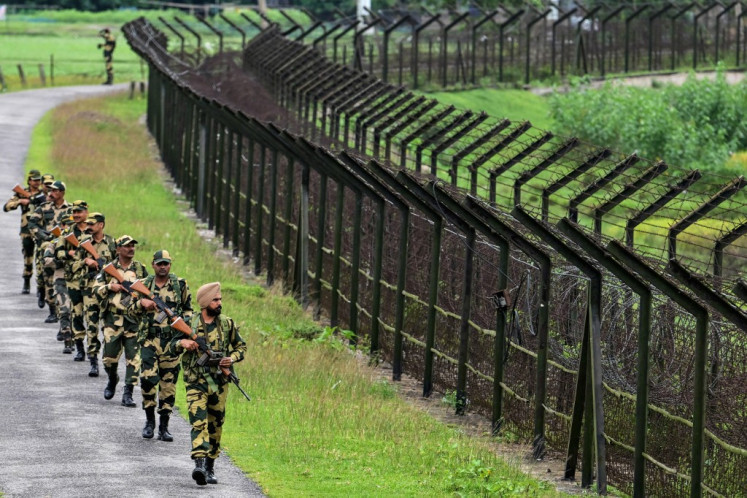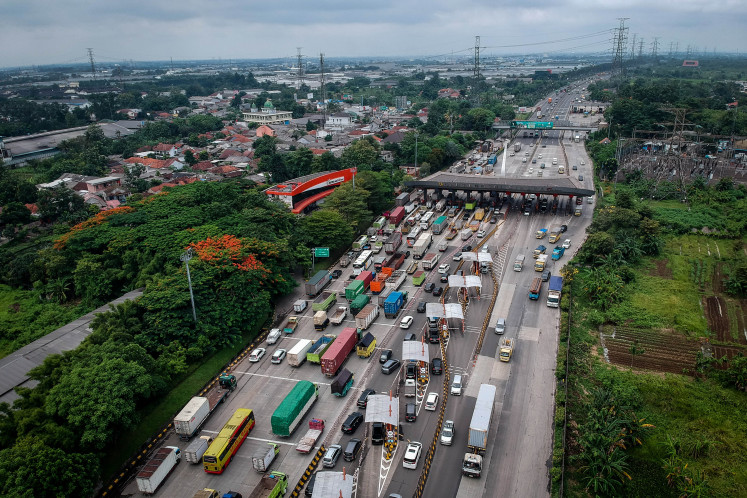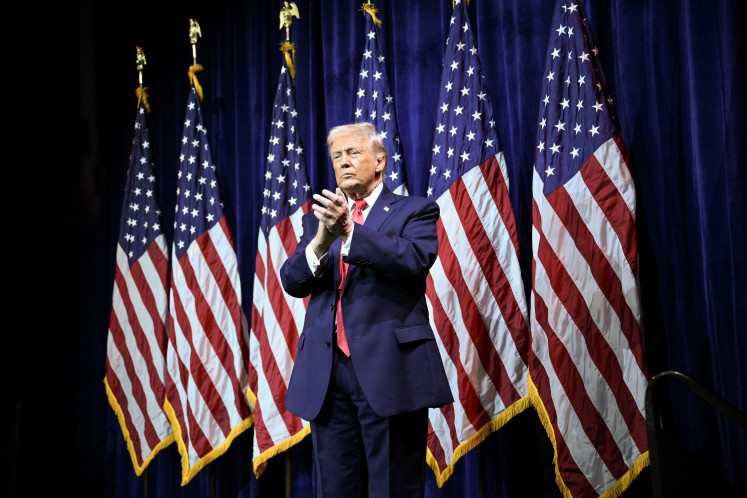Popular Reads
Top Results
Can't find what you're looking for?
View all search resultsPopular Reads
Top Results
Can't find what you're looking for?
View all search resultsWhy the world needs China after Iran’s Qatar strike
In a multipolar world, military action without diplomatic follow-through risks pushing adversaries closer to emerging powers.
Change text size
Gift Premium Articles
to Anyone
W
hen Iran launched a carefully calibrated missile strike at the United States-run Al Udeid Air Base in Qatar, the world braced for wider conflict. Yet, reports quickly shifted the narrative: Iran had forewarned the US through diplomatic channels.
This deliberate act of restraint, a stunning departure from the usual logic of surprise and escalation, carries profound implications. It raises a critical question about crisis stabilization in a multipolar world, increasingly pointing to China as a necessary player, a reality the US, despite its reluctance, cannot afford to ignore.
Tehran’s advance warning was a strategic signal, not an act of weakness. After enduring US-Israeli airstrikes on its fortified nuclear facilities, Iran was expected to retaliate with fury. Instead, it opted for precision over provocation, demonstrating both capability and calculation. This move underscored that while Iran will defend its sovereignty, it seeks to avoid an unwinnable war, especially given its crucial diplomatic ties with partners like China and ASEAN.
Iran’s measured strike was partly a message to China, its largest oil customer and a burgeoning diplomatic force in the Middle East. China has steadily expanded its influence as a stability broker, as seen in recent summits.
By forewarning the US, Iran provided Beijing diplomatic space, avoiding a situation that would force China into a binary choice between supporting an ally or condemning escalation. This allowed China to maintain its moderate stance, urging restraint while preserving strategic and economic relationships with all parties. Iran’s action thus aligns with a broader, multipolar framework where measured force communicates rather than dominates.
Beyond diplomacy, the June 23 strike has significant scientific and strategic implications. The US used GBU-57 "bunker buster" bombs against Iran’s subterranean nuclear sites. However, assessing the actual damage is incredibly challenging due to central Iran's unique geological composition, the concrete reinforcement of the facilities, and the strategic dispersal of enrichment centrifuges. Accurate assessment requires on-the-ground expertise and advanced forensic tools.
This is where China becomes crucial. Its nuclear scientists are uniquely equipped to provide the objective, technical damage assessment that neither the US nor Israel has the capability to provide. Chinese institutes, pioneers in subsurface imaging and radiological diagnostics, possess the tools to help Iran map its operational capabilities.
In this sense, scientific cooperation emerges as a new dimension of geopolitical influence. The irony is that the US, typically driven by strategic preemption, might find itself relying on Chinese verification. Misjudging the impact of the bunker busters could lead to catastrophic miscalculations, making China's clear-eyed, non-aligned scientific perspective not just helpful, but indispensable.
While Iran and China garner headlines, ASEAN has quietly emerged as a significant force. Under Malaysian Prime Minister Anwar Ibrahim's current group chairmanship, ASEAN remains firmly committed to dialogue, neutrality and multilateral diplomacy. Its foundational principle of non-alignment has gained new significance in a multipolar world, offering a platform where diplomacy can still thrive even as the US and China appear locked in competition.
Anwar’s leadership exemplifies how smaller powers can wield moral and institutional influence, with ASEAN's soft power legitimizing measured responses and multilateral engagement, indirectly acting as a pressure valve for global tensions.
For the US, the events of June 23 should serve as a wake-up call. In a unipolar era, Washington might have expected punitive airstrikes to yield compliance. But in a multipolar world, military action without diplomatic follow-through risks pushing adversaries closer to emerging powers like China.
Both the Biden and Trump administrations have struggled to reconcile coercive force with diplomatic credibility. This episode highlights the limits of a purely military approach and shows that the US cannot afford to ignore the stabilizing potential of countries it often treats as rivals.
By isolating China, the US forfeits crucial diplomatic leverage, scientific assessments and third-party verification, insights vital to preventing further escalation in the Gulf.
What the world witnessed on Monday was more than a military maneuver, it was the unveiling of a new order. Here, strength is measured by the capacity for restraint, civilian scientists are as critical as generals and nonaligned coalitions, from ASEAN to the Shanghai Cooperation Organisation, become essential forums for dialogue.
China’s role is not merely that of a peer competitor, it is a necessary stabilizer. Its capacity to combine diplomacy, science and economic statecraft gives it influence that hard power alone cannot replicate.
Iran’s forewarning, ASEAN’s quiet mediation and China’s rising credibility as a scientific and diplomatic actor all point to the same conclusion: the future of international order depends on the ability of multiple actors, not just one hegemon, to act with vision, responsibility and restraint.
The Iran-Qatar strike was a strategic inflection point, revealing the inadequacy of old tools of dominance in layered, complex and scientifically opaque conflicts. In this environment, the world needs cooperative coalitions, scientific insight and diplomatic inclusivity. It needs China, not as a rival to be outmaneuvered, but as a partner in ensuring that global stability is not unraveled by pride, fear or miscalculation.
The US, if it is honest, must now admit that its ability to avoid war, and win peace, depends on more than just American power. It depends on China’s steady hand, ASEAN’s quiet diplomacy and a global consensus that war is no longer the answer to every provocation.
The world stands at a crossroads, let us hope it chooses the path of prudence, dialogue and science. The stakes could not be higher.
***
The writer is professor of ASEAN Studies at the International Islamic University Malaysia, a Cambridge Commonwealth Fellow, and former head teaching fellow at Harvard University.











